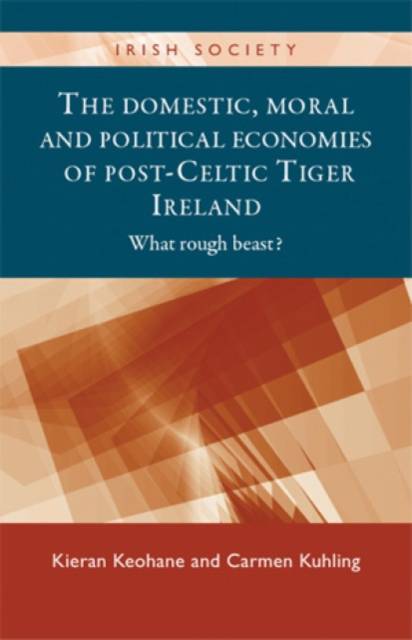
- Afhalen na 1 uur in een winkel met voorraad
- Gratis thuislevering in België vanaf € 30
- Ruim aanbod met 7 miljoen producten
- Afhalen na 1 uur in een winkel met voorraad
- Gratis thuislevering in België vanaf € 30
- Ruim aanbod met 7 miljoen producten
Zoeken
The Domestic, Moral and Political Economies of Post-Celtic Tiger Ireland
What Rough Beast?
Kieran Keohane, Carmen Kuhling
€ 209,45
+ 418 punten
Omschrijving
This book provides an analysis of neo-liberal political economics implemented in Ireland and the deleterious consequences of that model in terms of polarised social inequalities, impoverished public services and fiscal vulnerability as they appear in central social policy domains - health, housing and education in particular. Tracing the argument into the domains where the institutions are sustained and reproduced, this book examines the movement of modern economics away from its original concern with the household and anthropologically universal deep human needs to care for the vulnerable - the sick, children and the elderly - and to maintain inter-generational solidarity. The authors argue that the financialisation of social relations undermines the foundations of civilisation and opens up a marketised barbarism. Civic catastrophes of violent conflict and authoritarian liberalism are here illustrated as aspects of the 'rough beast' that slouches in when things are falling apart and people become prey to new forms of domination.
Specificaties
Betrokkenen
- Auteur(s):
- Uitgeverij:
Inhoud
- Aantal bladzijden:
- 208
- Taal:
- Engels
- Reeks:
Eigenschappen
- Productcode (EAN):
- 9780719084829
- Verschijningsdatum:
- 31/03/2014
- Uitvoering:
- Hardcover
- Formaat:
- Genaaid
- Afmetingen:
- 163 mm x 236 mm
- Gewicht:
- 453 g

Alleen bij Standaard Boekhandel
+ 418 punten op je klantenkaart van Standaard Boekhandel
Beoordelingen
We publiceren alleen reviews die voldoen aan de voorwaarden voor reviews. Bekijk onze voorwaarden voor reviews.











